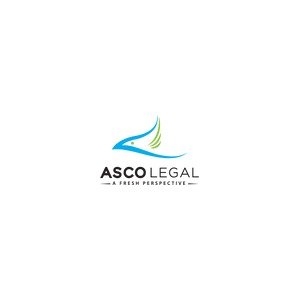Best Energy, Environment & ESG Lawyers in Auckland
Share your needs with us, get contacted by law firms.
Free. Takes 2 min.
List of the best lawyers in Auckland, New Zealand
About Energy, Environment & ESG Law in Auckland, New Zealand
Energy, Environment and ESG (Environmental, Social and Governance) law are key areas of legal practice in Auckland, New Zealand. These interconnected fields address how businesses and individuals interact with the environment, manage energy resources, and uphold social and governance standards set by both local and international authorities. In Auckland, these laws impact a wide range of activities, from large infrastructure projects and urban development to everyday business operations and compliance obligations. The steady growth of Auckland has increased the focus on sustainable development, renewable energy adoption, and meeting high environmental standards, making it crucial for parties involved to understand the complexities of these legal requirements.
Why You May Need a Lawyer
Energy, environment, and ESG issues can involve complex regulations and significant consequences for non-compliance. You may need a lawyer if you are:
- Starting or expanding a business that affects land, air, or water resources
- Considering major construction or infrastructure projects
- Facing allegations of environmental harm or regulatory breaches
- Working to meet climate change obligations or sustainability goals
- Pursuing renewable energy projects or investments
- Dealing with environmental due diligence for property transactions
- Needing guidance on corporate ESG reporting or disclosures
- Objecting or responding to council consents and environmental permits
- Engaged in disputes about resource use or pollution
- Impacting or impacted by Maori land or cultural values in environmental matters
Local Laws Overview
Auckland operates under New Zealand's national legislative framework but also applies its own regional rules and planning documents. Key legislation includes the Resource Management Act 1991 (RMA), which governs land use and environmental protection throughout Auckland. The RMA sets out processes for resource consent, environmental impact assessments, and public participation in decision making. Auckland Council enforces further rules via the Auckland Unitary Plan, which manages how land can be used, developed, and protected in the region.
Energy generation and distribution are mainly regulated at a national level by the Electricity Industry Act 2010, with additional oversight for energy efficiency and renewable initiatives. The Climate Change Response Act 2002 and associated Emissions Trading Scheme set out obligations for greenhouse gas management.
ESG is an emerging area, shaped by both regulatory requirements (such as disclosure obligations for some companies) and voluntary best practice standards. For investors and companies, ESG considerations increasingly affect strategy, operations, and reporting. Compliance with the Health and Safety at Work Act 2015, anti-bribery laws, and employment standards also contribute to the ESG requirements of Auckland businesses.
Frequently Asked Questions
What is the Resource Management Act and how does it affect Auckland projects?
The Resource Management Act 1991 (RMA) is the main law for managing the environment in New Zealand. It impacts how land is used, requiring most developments or activities that might affect the environment to get resource consent from the council.
When do I need resource consent from Auckland Council?
You need resource consent if your activity or development is not permitted by the Auckland Unitary Plan or could impact the environment. Common examples include new buildings, major renovations, earthworks, or discharges to land, air, or water.
What are my obligations regarding climate change in Auckland?
Businesses and some individuals must comply with national climate change laws, such as reporting or reducing greenhouse gas emissions if they qualify under the Emissions Trading Scheme. The Auckland Council also has strategies for making the city more resilient and sustainable.
How do ESG requirements affect businesses in Auckland?
Companies, particularly listed ones or those seeking investment, may need to report on their environmental, social, and governance performance. This includes disclosing environmental risks, managing workplace diversity, and ensuring ethical governance.
What happens if I breach environmental regulations?
Breaching environmental laws can lead to enforcement actions, fines, or even prosecution. The Auckland Council or central government agencies can require remediation, issue abatement notices, or take legal action for serious violations.
How do I challenge a resource consent decision?
You can make submissions during the consent process if you are an affected party, and you may appeal the Council's decision to the Environment Court. Legal advice is recommended for these appeals as the process is formal and requires strong evidence.
Are there special environmental protections for Maori land or cultural sites?
Yes, New Zealand law protects Maori land and areas of cultural significance. Any activities near such areas often require special assessment and consultation with local iwi and hapu.
What is the Auckland Unitary Plan?
The Auckland Unitary Plan is the main planning document for Auckland. It sets out rules for development, land use, and environmental protection across the city and its surroundings.
Can I build renewable energy infrastructure on my property?
Small-scale renewable installations, like solar panels, are generally supported, but larger projects or those that could impact neighbours or the environment might need resource consent. Check the Unitary Plan and seek legal advice before starting.
How do I ensure my business complies with all relevant ESG standards?
Staying compliant involves regular review of legal requirements and voluntary standards, updating company policies, and engaging with stakeholders. Consulting with legal and ESG specialists can help you navigate reporting and risk management.
Additional Resources
- Auckland Council - Resource consents and environmental services
- Ministry for the Environment - Guidance on national policies and legislation
- Environment Court of New Zealand - Information on environmental disputes
- Energy Efficiency and Conservation Authority (EECA) - Advice on renewable energy
- Financial Markets Authority - ESG disclosure requirements
- Waitangi Tribunal - Advice on Maori land and cultural claims
- Law Society of New Zealand - Lawyer referral services
- Climate Change Commission - Climate policy advice and recommendations
Next Steps
If you need legal assistance in energy, environment, or ESG matters in Auckland, start by clarifying your issue and gathering any relevant documents or correspondence. Reach out to a New Zealand qualified lawyer with experience in these specific areas. You may wish to contact the New Zealand Law Society for referrals or enquire with local law firms specializing in energy, environmental, or ESG law. Early engagement with a lawyer can help you navigate regulatory steps, avoid costly mistakes, and ensure your legal interests are protected throughout any project or dispute.
Lawzana helps you find the best lawyers and law firms in Auckland through a curated and pre-screened list of qualified legal professionals. Our platform offers rankings and detailed profiles of attorneys and law firms, allowing you to compare based on practice areas, including Energy, Environment & ESG, experience, and client feedback.
Each profile includes a description of the firm's areas of practice, client reviews, team members and partners, year of establishment, spoken languages, office locations, contact information, social media presence, and any published articles or resources. Most firms on our platform speak English and are experienced in both local and international legal matters.
Get a quote from top-rated law firms in Auckland, New Zealand — quickly, securely, and without unnecessary hassle.
Disclaimer:
The information provided on this page is for general informational purposes only and does not constitute legal advice. While we strive to ensure the accuracy and relevance of the content, legal information may change over time, and interpretations of the law can vary. You should always consult with a qualified legal professional for advice specific to your situation.
We disclaim all liability for actions taken or not taken based on the content of this page. If you believe any information is incorrect or outdated, please contact us, and we will review and update it where appropriate.
Browse energy, environment & esg law firms by service in Auckland, New Zealand
Auckland, New Zealand Attorneys in related practice areas.

















